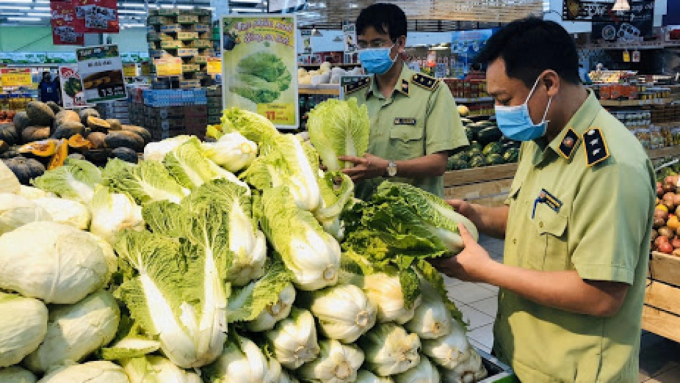October 22, 2025 | 09:11 GMT +7
October 22, 2025 | 09:11 GMT +7
Hotline: 0913.378.918
October 22, 2025 | 09:11 GMT +7
Hotline: 0913.378.918

Payment is made to producers, individuals, and businesses engaged in food exports and imports when they submit dossiers to competent organs for appraisal and approval of permits of circulation, import, and published food safety certifications; appraise and issue certificates for exported food; appraise and grant certificates of eligibility for food.
Fees for evaluation and licensing of circulation, import, certification, and publishing in the area of food safety were stated in the circular. The cost for the evaluation of registration dossiers for health protection foods, medical nutritional foods, foods for special diets, and nutritional goods for children up to 36 months of age is VND1.5 million per product.
The fee for appraisal of dossiers for registration of product announcements for mixed food additives with new uses, food additives that are not on the list of permitted food additives or are not used by the appropriate users in accordance with Ministry of Health regulations, is VND500,000 per time and per product.
Fees for food shipping confirmation (excluding testing expenses) vary between VND 300,000 and VND 10 million per lot.
The cost for assessing and issuing certifications for exported food (free sale certificates, export certificates, and medical certificates) is VND1 million per certificate.
The fee for evaluating the circumstances for practicing and doing business in the area of food safety ranges from VND 500,000 and 28.5 million each time.
According to the circular's provisions, if the fee-collecting organization is a public non-business unit or a state agency that is assigned operating expenses from toll collection, 70% of the fees collected may be used to cover prescribed expenditures, with the remaining 30% going to the state budget.
If the fee-collecting organization is a state agency that is not permitted by law to deduct operational costs from fee collections, it must deposit the full fee collection into the state budget. The source of funds for service supply and fee collection must be determined by the state budget in the collecting organization's budget estimate in accordance with state budget spending regulations and standards.
Food safety has long been a priority for ministries, agencies, and the whole community. As society develops, customer demands increase, necessitating the involvement and duty of producers and companies in tighter enforcement of food safety and production transparency laws.
Translated by Sammuel Pham

(VAN) The Prime Minister has instructed ministries and agencies to tighten fishing-vessel oversight, increase patrols, digitize traceability systems, and concentrate all available resources on combating IUU fishing.
/2025/10/18/3400-0-nongnghiep-163353.jpg)
(VAN) Tilapia is experiencing strong growth, with export turnover in the first eight months of 2025 nearly tripling and gradually becoming a new key product of the fisheries sector.

(VAN) As gene editing has become a defining scientific frontier of modern agriculture, Viet Nam must soon establish a legal mechanism tailored to this technology to fully unlock its potential.
/2025/10/16/1254-2-145938_691.jpg)
(VAN) An expert from Hanoi University of Natural Resources and Environment has raised four barriers hindering Vietnam's progress toward achieving its target of net-zero emissions.

(VAN) Vietnam’s irrigation sector is shifting from manual operations to intelligent management, moving toward a modern, transparent, and climate-resilient water governance system.

(VAN) Acting Minister Tran Duc Thang agreed with Erex Group’s proposal and committed to supporting it, prioritizing resources, and assigning relevant agencies to take charge.

(VAN) On October 14, Deputy Prime Minister Tran Hong Ha chaired the 17th meeting of the National Steering Committee on Combating Illegal, Unreported and Unregulated (IUU) Fishing, connecting online with 21 coastal provinces and cities.